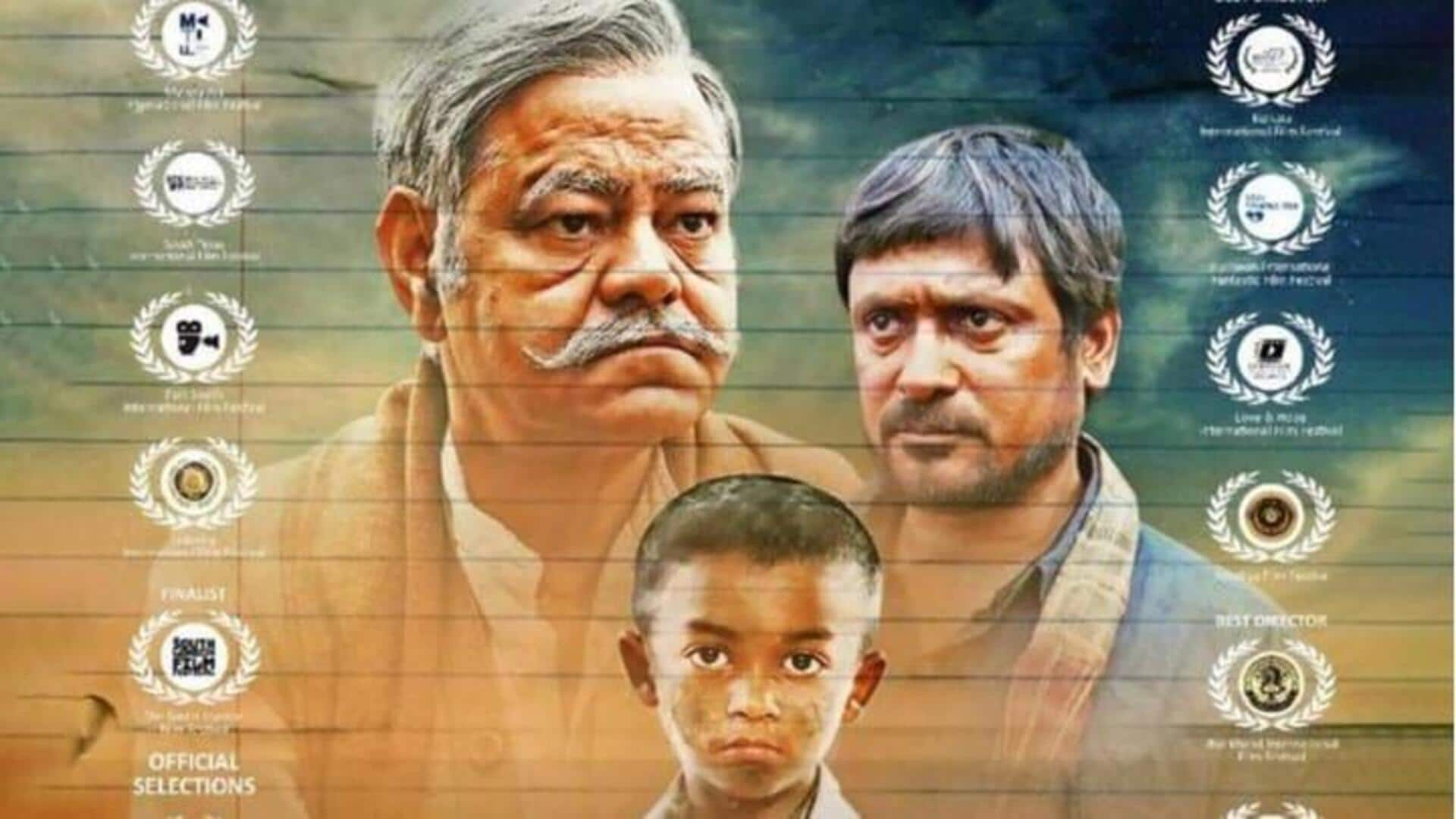
Reasons why Sanjay Mishra's 'Guthlee Ladoo' is strictly one-time watch
What's the story
Sanjay Mishra's Guthlee Ladoo—directed by Ishrat R Khan and produced by Pradeep Rangwani—is a tale of oppression, class and caste inequalities, and the nexus between ambassadors of "pure castes" and bureaucracies. It depicts how such events lead to the literal and metaphorical death of the oppressed. The film deals with a scorching topic, but falters in execution, reducing itself to merely a one-time watch.
Plot
Story deals with right to education for all, caste notwithstanding
The film follows a child Guthlee, a Dalit who yearns for education. His father, a scavenger, listens empathetically but can't fully commit to the idea. After the accidental death of Guthlee's friend Ladoo, he turns around and gives a clarion call for a revolt in their village. Harishankar (Mishra)—an upper-caste school principal—is torn between the present and the future but eventually helps them.
#1
Village setting looks authentic, perfect for film
To begin with the positives, the most striking part that instantly invited me into its world is its setting. Seemingly shot in a real location, it features a village, and the setting is authentic to the T—with haybarns, thatched homes, the division of labor based on gender, and a different area for the Dalits/Harijans to live, the film brings alive a North Indian village.
#2
Have caste-based atrocities perished? 'GT' wants you to re-think
GT deserves plaudits for underlining a topic that is of essential importance, and even though we would like to believe that caste oppression has been wiped out, rural India has a different story to tell. From Dalit scavengers sitting on floors, people washing hands after meeting them, feeding them up in different cups—a separate identity is carved for them every step of the way.
#3
Guthlee, ambitious child, is introduced creatively
One of the most heartfelt moments in the film arrives early on when Guthlee runs around a van selling guthlee jamun. You get the impression that as a kid, he is fixated on the snack, but instead, he learns how to write his name after looking at the van! His ache for equality, education, and a life of respect is palpable and reverberates throughout.
#4
Negatives: Same instances are played over and over
GT, however, suffers under the weight of its mammoth expectations. It has a good premise, but GT stretches it endlessly, and in doing so, the movie becomes bland, predictable, and worn down. You can foresee the sequence of events—the way the story takes turns and when characters take a 180-degree turn based on a couple of simple speeches. It is simply ineffective and preposterous.
#5
Needless parallel track, humor doesn't evoke laughter
There's a parallel track about Harishankar's mother, which is needless and doesn't do anything for the characters or the movie. Unsuccessful efforts at humor and recurring tonal shifts in the characters that leave you confused as to who you should root for also kept me at a distance from loving the drama. Eventually, GT has a good story but yearns for a well-developed plot.